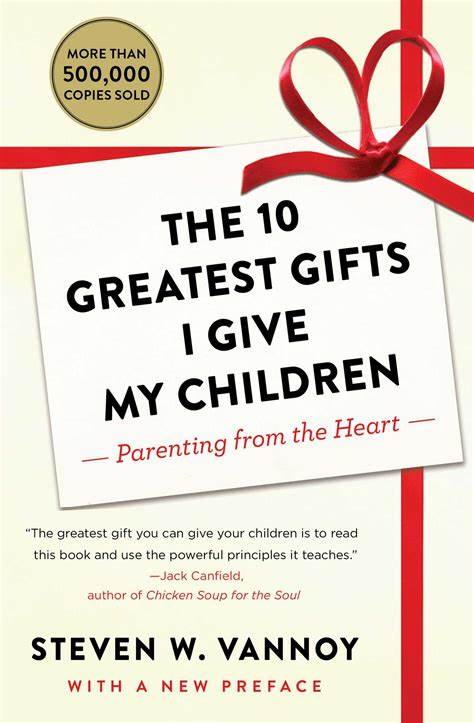Parenting from the Heart
By Steven Vannoy
Gift One: Feeling Fully
What does feeling fully mean? That sure piqued my interest. Steven Vannoy defines feeling fully as, “not being afraid of our feelings; feelings crop up all day, every day. Feeling fully, to him, means life itself. Knowing and experiencing emotions is a gift he wanted with all his heart for his children.” He speaks about the importance of “letting” our children feel what they’re feeling without interjecting our thoughts on how they should or shouldn’t be feeling. Vannoy firmly believes we are entitled to feel what we feel. Yes! Nothing more, nothing less. There is not a “right or wrong” way to feel.
When our children have emotions and feelings that we don’t understand, we’ve all probably said something that perhaps came across sounding a bit dismissive. Ever had someone say to you, “Stop crying, or I will give you something to cry about?” Or I’m pretty sure we’ve had someone tell us at one time or another, “You’re fine, it’s fine,” or maybe, you’ve been upset about something that happened and someone told you there was no need to be that upset about it. Did that help you feel better?
Feelings are just that; they’re feelings. Here is where Steven Vannoy hits the mark when he states, “Feelings can’t be argued about.” And much as we try to be empathetic and understanding, sometimes, we don’t get/understand why someone reacts the way they do. Here’s where we “GIFT” to our children the right to have the feelings they’re experiencing, accept how they’re feeling, and just be there for them.
In this chapter, Vannoy talks about the fallout that often follows when feelings and emotions aren’t dealt with in healthy ways. Ignoring feelings and pushing them down further usually doesn’t end well. Vannoy specifically addresses when children are angry; it usually requires some physical release. As adults, we’re no different. When we get frustrated, angry, or mad, sometimes going outside for a walk/or just removing ourselves from the situation is what we need to “blow off steam.” Recognizing your child might need to release their emotions physically in a safe way for them and others teaches them two things. First, it’s ok to feel frustrated or mad about something, and secondly, how you handle your feelings matters; handling feelings and emotions needs to be done appropriately. Other big emotions that can be difficult for children to manage are feelings of sadness, loneliness, and being left out. Our job as parents is to teach our children it’s normal to have these feelings and reassure them nothing is “wrong” with these big feelings, and it’s ok to feel like this sometimes (if your child struggles with these feelings often and you have a growing concern about the frequency of your child’s big feelings, please seek out a trusted professional for guidance).
I agree with Vannoy on his “take” about talking through feelings with children. “The cost of not being able to feel fully is obvious. We stay stuck; we can’t feel joy; we lose our aliveness. Our productivity dives, our creativity declines, and our self-esteem and ability to be our best is diluted. The benefits of feeling fully are clearly the flip side of the coin. We experience aliveness, creativity, self-esteem, better health, and better-coping skills.”
I’m thinking, Steven Vannoy’s perspective on “feeling fully” makes a lot of sense. What do you think?



